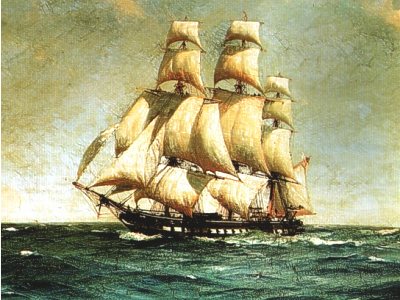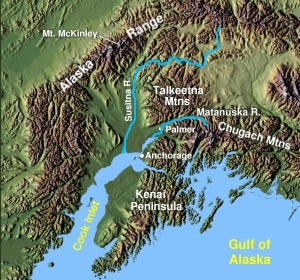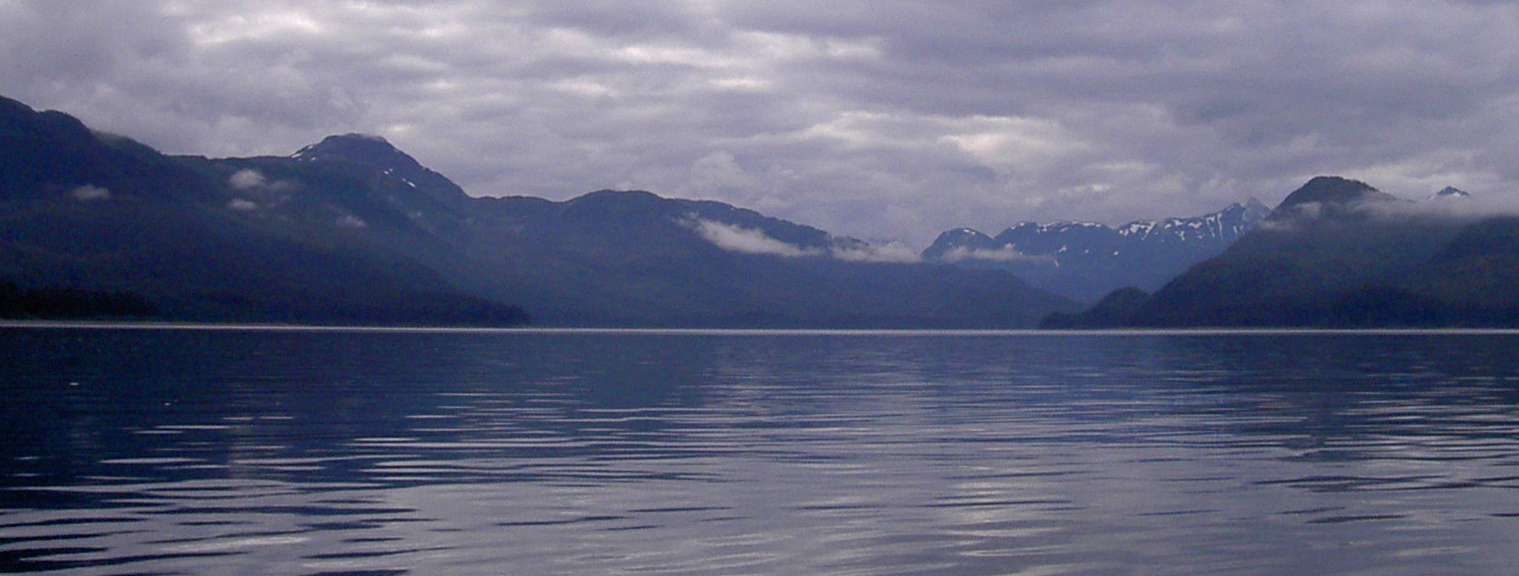|
Nathaniel Portlock
Nathaniel Portlock (c. 1748 – 12 September 1817) was a British ship's captain, maritime fur trader, and author. He entered the Royal Navy in 1772 as an able seaman, serving in . In 1776 he joined as master's mate and served on the third Pacific voyage of James Cook. During the expedition, in August 1779, he was transferred to . He passed his lieutenant's examination on 7 September 1780, then served on in the Channel fleet. On Cook's third voyage, furs obtained in present-day British Columbia and Alaska sold for good prices when the expedition called at Macao. In 1785 Richard Cadman Etches and partners, including Portlock and George Dixon formed a partnership, commonly called the King George's Sound Company, to develop the fur trade. Dixon had also served on ''Resolution'' in the Pacific Ocean under Cook. In September 1785 Portlock and Dixon sailed from England. Portlock was in command of the larger vessel, the 320-ton ( bm) , with a crew of 59. Dixon's was in command of t ... [...More Info...] [...Related Items...] OR: [Wikipedia] [Google] [Baidu] |
Greenwich
Greenwich ( , ,) is a town in south-east London, England, within the ceremonial county of Greater London. It is situated east-southeast of Charing Cross. Greenwich is notable for its maritime history and for giving its name to the Greenwich Meridian (0° longitude) and Greenwich Mean Time. The town became the site of a royal palace, the Palace of Placentia from the 15th century, and was the birthplace of many Tudors, including Henry VIII and Elizabeth I. The palace fell into disrepair during the English Civil War and was demolished to be replaced by the Royal Naval Hospital for Sailors, designed by Sir Christopher Wren and his assistant Nicholas Hawksmoor. These buildings became the Royal Naval College in 1873, and they remained a military education establishment until 1998 when they passed into the hands of the Greenwich Foundation. The historic rooms within these buildings remain open to the public; other buildings are used by University of Greenwich and Trinity Lab ... [...More Info...] [...Related Items...] OR: [Wikipedia] [Google] [Baidu] |
William Bligh
Vice-Admiral William Bligh (9 September 1754 – 7 December 1817) was an officer of the Royal Navy and a colonial administrator. The mutiny on the HMS ''Bounty'' occurred in 1789 when the ship was under his command; after being set adrift in ''Bounty''s launch by the mutineers, Bligh and his loyal men all reached Timor alive, after a journey of . Bligh's logbooks documenting the mutiny were inscribed on the UNESCO Australian Memory of the World register on 26 February 2021. Seventeen years after the ''Bounty'' mutiny, on 13 August 1806, he was appointed Governor of New South Wales in Australia, with orders to clean up the corrupt rum trade of the New South Wales Corps. His actions directed against the trade resulted in the so-called Rum Rebellion, during which Bligh was placed under arrest on 26 January 1808 by the New South Wales Corps and deposed from his command, an act which the British Foreign Office later declared to be illegal. He died in London on 7 December 1 ... [...More Info...] [...Related Items...] OR: [Wikipedia] [Google] [Baidu] |
English Explorers Of North America
English usually refers to: * English language * English people English may also refer to: Peoples, culture, and language * ''English'', an adjective for something of, from, or related to England ** English national identity, an identity and common culture ** English language in England, a variant of the English language spoken in England * English languages (other) * English studies, the study of English language and literature * ''English'', an Amish term for non-Amish, regardless of ethnicity Individuals * English (surname), a list of notable people with the surname ''English'' * People with the given name ** English McConnell (1882–1928), Irish footballer ** English Fisher (1928–2011), American boxing coach ** English Gardner (b. 1992), American track and field sprinter Places United States * English, Indiana, a town * English, Kentucky, an unincorporated community * English, Brazoria County, Texas, an unincorporated community * Engli ... [...More Info...] [...Related Items...] OR: [Wikipedia] [Google] [Baidu] |
Lloyd's Of London
Lloyd's of London, generally known simply as Lloyd's, is an insurance and reinsurance market located in London, England. Unlike most of its competitors in the industry, it is not an insurance company; rather, Lloyd's is a corporate body governed by the Lloyd's Act 1871 and subsequent Acts of Parliament. It operates as a partially-mutualised marketplace within which multiple financial backers, grouped in syndicates, come together to pool and spread risk. These underwriters, or "members", are a collection of both corporations and private individuals, the latter being traditionally known as "Names". The business underwritten at Lloyd's is predominantly general insurance and reinsurance, although a small number of syndicates write term life insurance. The market has its roots in marine insurance and was founded by Edward Lloyd at his coffee house on Tower Street in 1688. Today, it has a dedicated building on Lime Street which is Grade I listed. Traditionally business is ... [...More Info...] [...Related Items...] OR: [Wikipedia] [Google] [Baidu] |
French Frigate Lutine (1779)
''Lutine'' was a frigate which served in both the French Navy and the Royal Navy. She was launched by the French in 1779. The ship passed to British control in 1793 and was taken into service as HMS ''Lutine''. She sank among the West Frisian Islands during a storm in 1799. She was built as a French with 32 guns, and was launched at Toulon in 1779. During the French Revolution, ''Lutine'' came under French Royalist control. On 18 December 1793, she was one of sixteen ships handed over to a British fleet at the end of the Siege of Toulon, to prevent her being captured by the French Republicans. In 1795, she was rebuilt by the British as a fifth-rate frigate with 38 guns. She served thereafter in the North Sea, where she was part of the blockade of Amsterdam. ''Lutine'' sank during a storm at Vlieland in the West Frisian Islands on 9 October 1799, whilst carrying a large shipment of gold. Shifting sandbanks disrupted salvage attempts, and the majority of the cargo has never be ... [...More Info...] [...Related Items...] OR: [Wikipedia] [Google] [Baidu] |
Washington, D
Washington commonly refers to: * Washington (state), United States * Washington, D.C., the capital of the United States ** A metonym for the federal government of the United States ** Washington metropolitan area, the metropolitan area centered on Washington, D.C. * George Washington (1732–1799), the first president of the United States Washington may also refer to: Places England * Washington, Tyne and Wear, a town in the City of Sunderland metropolitan borough ** Washington Old Hall, ancestral home of the family of George Washington * Washington, West Sussex, a village and civil parish Greenland * Cape Washington, Greenland * Washington Land Philippines *New Washington, Aklan, a municipality *Washington, a barangay in Catarman, Northern Samar *Washington, a barangay in Escalante, Negros Occidental *Washington, a barangay in San Jacinto, Masbate *Washington, a barangay in Surigao City United States * Washington, Wisconsin (other) * Fort Washington (other) ... [...More Info...] [...Related Items...] OR: [Wikipedia] [Google] [Baidu] |
Kenai Peninsula
The Kenai Peninsula ( Dena'ina: ''Yaghenen'') is a large peninsula jutting from the coast of Southcentral Alaska. The name Kenai (, ) is derived from the word "Kenaitze" or "Kenaitze Indian Tribe", the name of the Native Athabascan Alaskan tribe, the Kahtnuht’ana Dena’ina ("People along the Kahtnu (Kenai River)"), who historically inhabited the area. They called the Kenai Peninsula ''Yaghanen'' ("the good land"). Geography The peninsula extends about southwest from the Chugach Mountains, south of Anchorage. It is separated from the mainland on the west by Cook Inlet and on the east by Prince William Sound. Most of the peninsula is part of the Kenai Peninsula Borough. Athabaskan and Alutiiq Native groups lived on the peninsula for thousands of years prior to Gerasim Izmailov becoming the first European to explore and map the area in 1789. The glacier-covered Kenai Mountains, rising , run along the southeast spine of the peninsula along the coast of the Gulf of Alas ... [...More Info...] [...Related Items...] OR: [Wikipedia] [Google] [Baidu] |
Portlock, Alaska
Portlock ( Sugpiaq: ''Arrulaa'ik'') is a ghost town in the U.S. state of Alaska, located on the southern edge of the Kenai Peninsula, around south of Seldovia. It is located in Port Chatham bay, from which an adjacent community takes its name. Named after Nathaniel Portlock, the town was an active cannery community in the early-twentieth century. History Establishment Portlock was established in the Kenai Peninsula in the early-twentieth century as a cannery, particularly for salmon. It is thought to have been named after Captain Nathaniel Portlock, a British ship captain who sailed there in 1786. In 1921, a United States Post Office opened in the town. The population largely consisted of Russian- Aleuts. Abandonment Around the 1940s, it was reported that several Dall sheep hunters had disappeared in the hills outside Portlock; it was also stated in a 1973 article from the ''Anchorage Daily News'' that dismembered bodies of some of the missing had washed ashore in the ... [...More Info...] [...Related Items...] OR: [Wikipedia] [Google] [Baidu] |
Chichagof Island
Chichagof Island (russian: Остров Чичагова), or Shee Kaax, is an island in the Alexander Archipelago of the Alaska Panhandle. At long and wide, it has a land area of , making it the fifth largest island in the United States and the 109th largest island in the world. Its coastline measures 742 miles. There was a 2000 census population of 1,342 persons. It is one of the ABC islands of Alaska. Chichagof Island has the highest population of bears per square mile of any place on Earth.Carol HealyBrown Bear Management Report Alaska Department of Fish & Game, Dec. 2003 Chichagof Island is directly north of Baranof Island, with Peril Strait separating the two islands. It is bounded by Chatham Strait to the east, Icy Strait to the northeast, Cross Sound to the northwest, and the Gulf of Alaska to the west. The communities of Hoonah, Pelican, Tenakee Springs, and Elfin Cove are all located on the northern half of Chichagof Island, in the Hoonah-Angoon Cen ... [...More Info...] [...Related Items...] OR: [Wikipedia] [Google] [Baidu] |
Joseph Ellison Portlock
Major-General Joseph Ellison Portlock (30 September 1794 – 14 February 1864) was born at Gosport and was a British geologist and soldier, the only son of Nathaniel Portlock, and a captain in the Royal Navy. Educated at Blundell's School and the Royal Military Academy, Portlock entered the Royal Engineers in 1813. In 1814, he took part in the frontier operations in Canada. In 1824, he was selected by Lieut-colonel (afterwards Major-General) T.F. Colby (1784–1852) to take part in Ordnance Survey of Ireland. He was engaged for several years in the trigonometrical branch and subsequently compiled information on the physical aspects, geology, and economic products of Ireland, including the Memoir for which he wrote substantial sections on productive economy. In 1837, he formed at Belfast a geological and statistical office, a museum for geological and zoological specimens, and a laboratory for the examination of soils. The work was then carried on by Portlock as the g ... [...More Info...] [...Related Items...] OR: [Wikipedia] [Google] [Baidu] |
Sea Fencibles
The Sea Fencibles were naval fencible (a shortening of ''defencible'') units established to provide a close-in line of defence and obstruct the operation of enemy shipping, principally during the French Revolutionary and Napoleonic Wars. The earliest recorded use of the term was in 1793, when Royal Navy captain Sir Home Popham organised groups of fishermen to guard against French vessels off the coast of Nieuwpoort, Belgium. At Popham's suggestion the British Admiralty subsequently authorised the formation of co-ordinated Sea Fencible units along the English and Irish coasts. From 1804 on they were supported by a network of Martello towers. Popham's Sea Fencible companies consisted of merchant seamen using their own private or commercial vessels, but operating under letters of marque that authorised them to capture enemy ships should opportunity arise. The Navy provided the Fencibles with uniforms and weapons; it also protected them from the depredations of navy press gangs ... [...More Info...] [...Related Items...] OR: [Wikipedia] [Google] [Baidu] |






